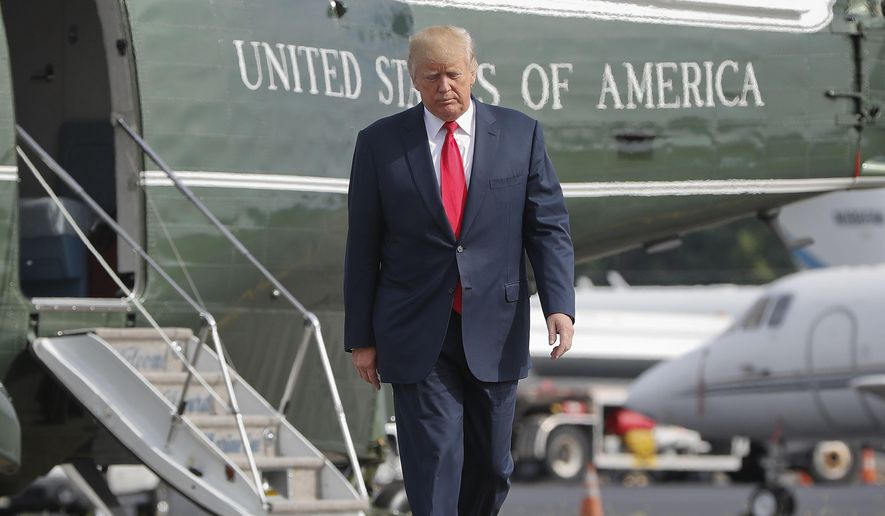OPINION:
Putting “America first” is what Americans expect of every president, and despite its isolationist history in the months leading up to World War II, the words “America first” can put a lump in many an American throat. “America first” was one of the slogans Donald Trump rode into the White House.
The new and unexpected president promised to cut back American commitments abroad and to avoid making new ones. Easier said than done. What the president and his fervent supporters quickly learned to their chagrin and disappointment is that it’s the overwhelming size and power of the United States — still the only superpower — that makes “America only” impossible.
The extent of U.S. power in relative terms cannot be overstated. The American gross domestic product, or GDP, the sum total of all its economic activity, comes to almost $19 trillion, $8 trillion more than China, its nearest rival. America’s high average individual income, large population, capital investment, moderate unemployment, high consumer spending, a relatively young population, and technological innovation, makes it unique among nations.
The United States has 24.9 percent of global wealth. The smallest economy, Tuvalu, a Polynesian island nation, has only 0.00005 percent, though the value of being comfortable on the sidelines is difficult to calculate. China has 18.3 percent of the global wealth. In 2017 five economies had GDPs above $1 trillion, 62 above $100 billion and 177 above $1 billion.
The U.S. overseas involvements continue with few changes in American policy under the Trump administration. Washington’s involvement in the Middle East continues to be one of its most important foreign entanglements. The U.S. alliance with Israel depends not only on the deep ties of affection and goodwill, but important commercial and technological ties as well.
When Mr. Trump initially tried to downgrade if not reject American participation in the North Atlantic Treaty Organization, he encountered counter pressure that should not have surprised him. The threat of NATO intervention blocked further Russian action against Ukraine, and enhanced support for U.S. and United Nations sanctions against Russia as a lever against further aggression by Vladimir Putin.
Trump’s short-lived flirtation with President Xi Jinping has been torpedoed by China’s aggression in the Sea of Japan and the South China Sea. Base-building athwart one of the major commercial sea lanes challenges America’s longtime advocacy of freedom of the seas, for itself and everyone else.
The U.S.-China relationship is critical, as the world has seen in recent weeks, to restraining the threat of North Korea to use its intercontinental ballistic missiles and nuclear weapons against Guam or other U.S. territory. China not only accounts for 90 percent of North Korea’s external trade, but Pyongyang’s IBM and nuclear weapons owe much to the earlier transfers of Chinese technology.
Mr. Trump’s hands-off policy in the civil war in Venezuela is not likely to be sustainable. The attempt of the regime in Venezuela to set up a socialist dictatorship, backed by the Castro government in Cuba, is a scheme to recruit and unite anti-American allies across the hemisphere. U.S. relations with Latin America are too intertwined in terms of trade, immigration and defense capabilities to be left to the machinations of the bankrupt regime in Havana whose only strategy continues to be anti-American.
Barack Obama withdrew from engagement abroad as much as he could, and the United States is paying for it. Retiring to “a house by the side of the road,” in the familiar words of the poet Sam Walter Foss, can sound appealing to Americans, particularly in a moment of domestic hysteria and fear and loathing abroad, but every president learns that if that road is Pennsylvania Avenue it can’t be a place for a president. Like it or not, the United States is no peaceful Polynesian republic lazing in the sunshine.




Please read our comment policy before commenting.